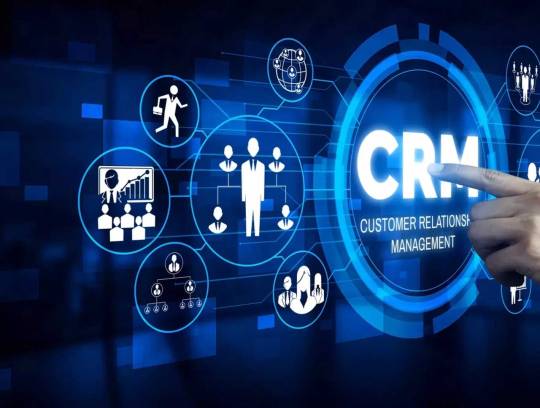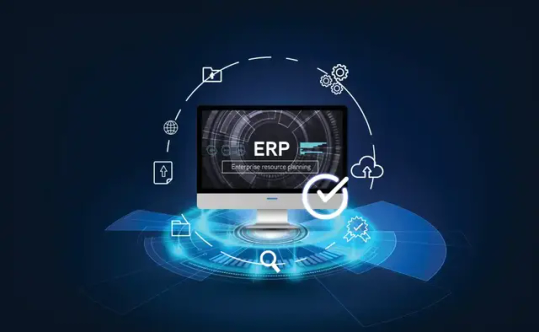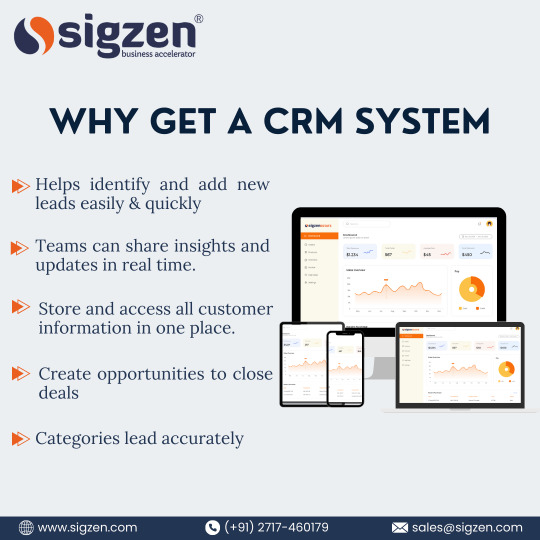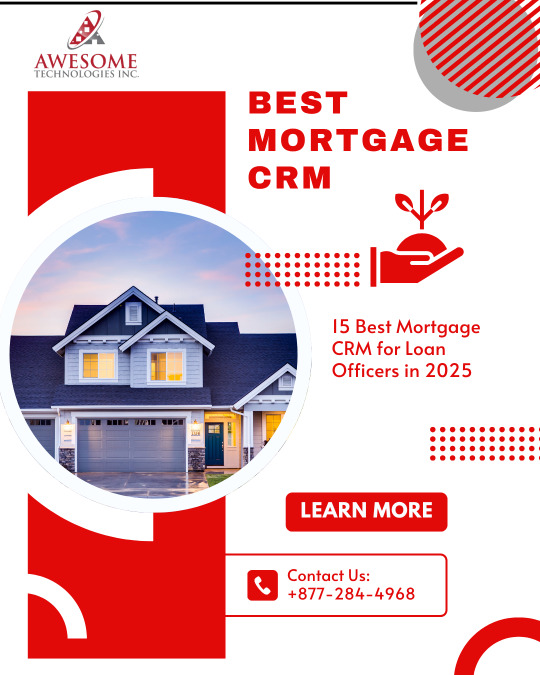#CRM solutions
Explore tagged Tumblr posts
Text


Best ERP and CRM Software Company in India | JRS Dynamics Info Solutions
Looking for reliable ERP and CRM solutions? JRS Dynamics Info Solutions is your go-to partner for streamlining business operations and driving growth.
Why Choose JRS Dynamics? ✅ End-to-End ERP Solutions ✅ Advanced CRM Systems ✅ Industry-Specific Customizations ✅ Implementation, Support & Upgrades
JRS Dynamics, we deliver cutting-edge technology to help businesses in India thrive in a competitive landscape.
Explore our services at: https://jrsdynamics.com/
Empower your business with the best ERP and CRM solutions from JRS Dynamics!
#crm#crm software#crm solutions#crm management software#erp#erpsoftware#dynamics365#erp solutions provider#digitaltransformation#businessmanagement#businessgrowth#businesssolutions#microsoftdynamics365#erp system#softwaredevelopment
4 notes
·
View notes
Text

Apnalead CRM – Your All-in-One Solution to Convert More Leads, Faster
2 notes
·
View notes
Text

Boost your business with the power of a CRM system! 🚀📈 Stay organized, close more deals, and collaborate seamlessly—all in one place. Ready to take your business to the next level? 💼✨
#erpnext#business growth#erp implementation#business optimization#manufacturing solutions#businesssolutions#inventory management#erp#business software#erp software solutions#crm software#crm solutions#crm services#erpnext software#erpnext solutions
3 notes
·
View notes
Text

https://www.istudiotech.in/custom-software-development-company-in-chennai/
iStudio Technologies is a top-rated custom software development company in Chennai offering scalable, secure, and high-performance software solutions tailored to your business needs. Their services span across enterprise software, SaaS platforms, ERP, CRM, and industry-specific applications. With a customer-focused approach and agile development process, they help businesses automate workflows and achieve digital transformation efficiently.
#Custom Software#Software Development Chennai#Enterprise Software#ERP Development#CRM Solutions#Business Automation#Tailored Software#SaaS Applications#IT Company Chennai#Software Developers India
0 notes
Text
Seamless Shifts: Building Business Continuity with Dynamics 365 Migration Services
Organizations using legacy ERP or CRM systems often face slow performance, fragmented data, and limited scalability. This has led many to pursue Dynamics 365 migration as a reliable step toward modernization and efficiency. With increasing adoption of cloud-first infrastructure, shifting workloads to Microsoft’s business applications platform has become a key move for growing enterprises.
Dynamics 365 migration services help businesses move from on-premise systems, outdated applications, or other cloud solutions into Microsoft’s ecosystem. This shift is not just about technology upgrades — it’s about reconfiguring business processes for better data access, smoother collaboration, and predictive analytics.
Trends in Dynamics 365 Migration
Cloud-first strategy: Companies migrating to Dynamics 365 often couple the transition with Azure Migration Services. This offers a scalable and secure foundation, ensuring compatibility with Microsoft services and minimizing disruptions.
Data cleanup and consolidation: Migrations are being used as opportunities to remove redundant data and improve master data accuracy across sales, finance, operations, and service functions.
Accelerated deployments: Preconfigured templates and automation tools are now being used to shorten deployment cycles, especially for clients migrating from earlier Dynamics versions or competing platforms like Salesforce or SAP.
Security compliance: Dynamics 365 offers built-in GDPR compliance, encryption, and access management. Migrating from legacy systems can significantly strengthen an organization’s data security posture.
What Migration Involves
Assessment and Planning
Identifying existing systems and data dependencies
Creating a roadmap for feature mapping, downtime planning, and licensing requirements
Data Preparation
Cleaning, formatting, and structuring datasets
Prioritizing high-value data for retention and compliance
System Integration
Ensuring integrations with Microsoft 365, Power Platform, or third-party systems
Planning for APIs and business logic replication
Testing and Validation
Conducting functional and user acceptance testing
Monitoring system behavior post-migration
User Enablement
Training teams on new workflows and features
Supporting change management to ensure a smooth transition
When to Consider Migration
Your current ERP or CRM system is nearing end-of-life or has become cost-intensive to maintain
You require mobile accessibility, real-time insights, or automation features not available in your legacy tools
You’re expanding globally or across departments and need consistent, scalable infrastructure
You want to leverage Power Platform components such as Power BI integration or Power Automate for business process optimization
VBeyond Digital’s Expertise
VBeyond Digital brings hands-on experience across a wide range of Dynamics 365 migration projects, with a focus on minimizing risk and ensuring operational continuity. The team helps businesses evaluate existing systems, configure efficient migration pathways, and deploy the right Microsoft solutions with clarity and precision.
Whether it’s a small-scale module transition or a full suite deployment paired with Azure Migration Services, VBeyond Digital supports every stage with deep technical insight and post-migration optimization strategies.
With strong capabilities in data transformation, business analysis, and Microsoft integration, VBeyond Digital ensures that the transition to Dynamics 365 leads to measurable business value.
Conclusion
Migration doesn’t have to be disruptive or resource-heavy when backed by the right strategy and technology. Moving to Microsoft’s modern ecosystem — through Dynamics 365 migration — can bring stronger reporting, better collaboration, and tighter integration between business functions.
Teams that prioritize modernization now are setting the stage for smarter operations, streamlined workflows, and scalable growth. Let VBeyond Digital be your partner in making that shift smoother and more successful.
0 notes
Text

Monday CRM empowers small businesses to grow by consolidating essential tools for lead management, sales, and customer support into one platform. Its smart automations handle repetitive tasks such as lead tracking and follow-ups, letting your team concentrate on activities that drive revenue. This streamlined system enhances efficiency, ensures consistency, and lays the foundation for long-term business stability.
#it#technology#it jobs#tech#crm benefits#crm services#sierra consulting#crm#monday crm sales#current events#monday mood#Monday CRM#CRM software#customer relationship management#CRM solutions#CRM platform#customer management#sales crm software#crm system monday#best CRM for small businesses#CRM tools#Sales CRM
0 notes
Text
0 notes
Text
GetOnCRM Triumphs at Salesforce TDX India 2025 Hackathon
GetOnCRM’s Team Triagents proudly secured the Best Use of Slack award at the Salesforce TDX 2025 Hackathon in Bengaluru, standing out with an innovative Slack integration that showcased their strength as a Salesforce CRM consulting company in India. This press release highlights GetOnCRM’s commitment to delivering cutting-edge CRM solutions and contributing to the Salesforce India ecosystem through real-time collaboration tools.
0 notes
Text
#Salesforce consulting#Salesforce development#CRM solutions#Salesforce integration#Salesforce customization#Websar Salesforce services
0 notes
Text
Boosting Online Business Efficiency: The Role of Ecommerce CRM
In the fast-paced world of digital commerce, managing customer relationships effectively has become a cornerstone of long-term success. As online retail expands and competition intensifies, businesses need more than just an attractive storefront—they need systems in place to understand, track, and serve customers efficiently. This is where ecommerce CRM (Customer Relationship Management) systems come into play.
An ecommerce CRM is a specialized tool that helps online retailers organize and analyze customer data to improve marketing strategies, personalize experiences, and ultimately increase customer retention and sales. In today’s hyperconnected world, ecommerce CRM is the anchor text for sustainable growth and operational efficiency.
Understanding Ecommerce CRM
Ecommerce CRM systems are digital platforms designed to manage a company’s interactions with current and potential customers. They compile data from various communication channels, including website visits, email marketing, social media interactions, and previous purchases. Unlike traditional CRM systems, ecommerce CRMs are tailored to the unique needs of online retailers, emphasizing real-time behavior tracking, product preferences, and transaction histories.
The core goal is to provide businesses with a 360-degree view of their customers, which in turn enables personalized marketing, streamlined customer service, and better sales forecasting.
Why Ecommerce Needs CRM More Than Ever
With online shopping becoming the norm, customer expectations are rising. Modern consumers expect personalized experiences, fast responses to inquiries, and smooth post-purchase support. Failing to meet these expectations often leads to cart abandonment and poor reviews. Ecommerce CRM software allows businesses to rise to the occasion by:
Personalizing Marketing Campaigns CRM tools segment customers based on demographics, browsing behavior, and purchase history. This enables retailers to target users with relevant product recommendations and timely promotions.
Automating Customer Service Automated responses, chatbot integration, and knowledge bases reduce support workloads while ensuring customers receive timely assistance.
Improving Retention Rates CRM platforms can trigger loyalty campaigns, remind customers of abandoned carts, or send follow-up emails to re-engage them. These actions boost repeat purchases and brand loyalty.
Enabling Data-Driven Decision Making With access to analytics and real-time reports, businesses can identify trends, monitor performance, and make informed strategic choices.
Key Features of an Effective Ecommerce CRM
When evaluating ecommerce CRM platforms, businesses should look for features that align with their operational goals. Here are the must-have capabilities:
Customer Segmentation: Automatically group customers by behavior, value, or demographics for targeted outreach.
Email and SMS Marketing Integration: Craft, schedule, and analyze campaigns from within the CRM.
Multi-Channel Support: Connect various platforms like Shopify, WooCommerce, Amazon, and social media accounts.
Order Tracking and History: Gain instant visibility into customer purchases and returns.
Real-Time Analytics and Dashboards: View key performance indicators (KPIs) and campaign effectiveness.
Automation Tools: Schedule personalized communications, birthday offers, or win-back campaigns with minimal manual input.
Benefits of Integrating Ecommerce CRM
The real strength of ecommerce CRM lies in its ability to centralize and streamline customer data, giving retailers actionable insights. Here’s how that translates into measurable benefits:
Enhanced Customer Experience: From browsing to buying, customers receive personalized experiences that boost satisfaction and loyalty.
Increased Sales Conversions: Tailored product recommendations and remarketing campaigns drive customers further down the sales funnel.
Reduced Marketing Costs: With smarter segmentation and targeting, businesses can achieve more with less spend.
Efficient Team Collaboration: Centralized information means sales, support, and marketing teams can work cohesively.
Ecommerce CRM in Action: Real-Life Application
Imagine a growing online apparel brand that sells across multiple channels—its website, Amazon, and Instagram. Without a centralized system, it struggles to track customer preferences or deliver consistent service. After implementing an ecommerce CRM, the brand starts tracking user behavior, automating email responses, and sending personalized offers. Within a few months, it sees a 25% boost in repeat purchases and a significant drop in cart abandonment rates.
This example illustrates how vital CRM systems have become for ecommerce success.
Choosing the Right Ecommerce CRM
The market offers numerous ecommerce CRM solutions such as HubSpot, Zoho CRM, Klaviyo, Salesforce Commerce Cloud, and Drip. Choosing the right platform depends on the size of your business, sales channels, and integration needs. Key factors to consider include:
Scalability: Can the system grow with your business?
Integration: Does it connect with your ecommerce platform and other tools?
Ease of Use: Is the user interface intuitive for your team?
Support: What level of customer support is available?
Challenges and Considerations
Despite the advantages, implementing an ecommerce CRM comes with challenges. Data privacy compliance (like GDPR), system integration complexities, and team training can slow down deployment. However, with careful planning and vendor support, these issues can be effectively managed.
The Future of Ecommerce CRM
As artificial intelligence (AI) and machine learning become more accessible, ecommerce CRMs are evolving. Predictive analytics, voice-enabled interfaces, and advanced chatbots will shape the next generation of customer relationship tools. Businesses that adopt these innovations early will be better positioned to thrive in a competitive digital landscape.
Conclusion
In conclusion, ecommerce CRM systems are indispensable for modern online retailers seeking growth and customer loyalty. From enhanced marketing automation to better service delivery, these platforms offer robust features that streamline operations and drive results. Ecommerce CRM is the anchor text for businesses aiming to build meaningful, data-driven relationships with their customers in an increasingly digital world
0 notes
Text

Every quarter, revenue leaders make bold projections. The numbers are crunched. The CRM is reviewed. The sales reps are confident.
Yet, when the quarter ends, actual revenue misses the mark.
What happened?
It’s not a sales problem. It’s not a marketing failure. It’s a revenue operations blind spot—and it's more common than you think.
When Good Data Leads to Bad Decisions
Most organizations rely heavily on their CRM for forecasting. But here’s the truth: CRMs were designed for data entry, not forecasting precision.
They give you static snapshots. You see deal values, expected close dates, and rep activity. But what you don’t see is:
How aligned your go-to-market teams actually are
Which deals are at risk (even if they look “committed”)
Where the real bottlenecks in your revenue engine lie
To get that clarity, you need RevOps.
RevOps: The Engine Behind Accurate Forecasting
Revenue Operations (RevOps) isn’t just about connecting systems—it’s about connecting insights to impact.
By aligning sales, marketing, and post-sales under one operational strategy, RevOps helps you:
Improve forecast accuracy through real-time, holistic visibility
Identify stalled deals before it’s too late
Understand true pipeline health—not just volume
Empower leadership with actionable intelligence
Platforms like Crenovent are built specifically to make these outcomes a reality.
Unlock Accuracy with Crenovent and RevOp Max
Crenovent’s RevOp Max is designed for teams who are done guessing. It offers:
Centralized forecasting dashboards
AI-powered risk detection across deals
Real-time insights from pipeline to post-sale
Integration with your existing CRM to enhance—not replace—your stack
And because it’s tailored for modern revenue teams, it scales as you scale—without losing control.
Why Crenovent?
Unlike generic software providers, Crenovent was built with a single mission: to make revenue predictable, scalable, and intelligent.
From startups to enterprise, our platform adapts to your needs, aligns your teams, and unlocks the power of RevOps in practice—not just theory.
Final Thought
Forecasts fail when they rely on assumptions and fragmented views.
They succeed when your revenue operations system is synchronized, your data is alive, and your teams are driving decisions together.
It’s time to leave the guesswork behind.
Explore the future of intelligent revenue at Crenovent.
#crm#crm benefits#crm integration#crm platform#crm services#crm solutions#crm software#crm strategy#ai#b2b saas
0 notes
Text
Top Mortgage CRM Tools for Loan Officers to Dominate 2025

Introduction: Why Loan Officers Need the Right CRM in 2025
In today’s ultra-competitive mortgage industry, staying ahead means more than just understanding lending it means using the right tools to build trust, automate workflows, and close deals faster. Enter the mortgage CRM for loan officers in 2025 a digital assistant designed to help you scale, stay organized, and provide a seamless experience to clients and referral partners.
Whether you’re a seasoned broker or a new-age mortgage consultant, the right CRM for mortgage brokers can help you:
Automate client follow-ups
Nurture warm leads
Track loan status and documentation
Stay compliant and efficient
Let’s explore the 15 best mortgage CRMs in 2025 that are making a real impact.
1. Jungo CRM
Best For: Enterprise loan teams using Salesforce Why Choose It? Jungo is built on Salesforce and specifically tailored for mortgage professionals. It offers pre-built workflows, partner integrations, and robust automation to simplify every stage of the mortgage process.
Top Features:
LOS integrations
Custom mortgage pipelines
Drip campaigns
Real-time notifications
SEO Tip: This is often rated the best mortgage CRM for loan officers 2025 by enterprise teams.
2. BNTouch Mortgage CRM
Best For: All-in-one mortgage CRM Why Choose It? BNTouch is built from the ground up for mortgage pros. From lead gen to post-close follow-up, it’s packed with mortgage-centric features.
Top Features:
Automated borrower communication
Pre-approval tracking
Email, SMS & video messaging
Partner co-marketing
3. Whiteboard CRM
Best For: Loan officers who prioritize follow-up Why Choose It? Whiteboard was designed by former mortgage professionals. Its easy interface and automated campaign builder make it a favorite among individual LOs.
Top Features:
Visual campaign builder
Custom email/text sequences
Realtor campaign tools
4. Shape Mortgage CRM
Best For: Scaling loan officer teams Why Choose It? Shape is sleek, powerful, and made for mortgage sales. It’s perfect for mid-size businesses needing advanced automation and reporting.
Top Features:
AI lead scoring
Real-time tracking
LOS integration
Full pipeline control
5. Surefire CRM by Top of Mind
Best For: Content marketing & nurturing Why Choose It? Surefire makes it easy to automate email nurturing and branded content delivery. A favorite for building long-term relationships.
Top Features:
Huge branded content library
Automated milestone emails
Partner marketing tools
6. Velocify by ICE Mortgage Tech
Best For: High-volume lending teams Why Choose It? Velocify is built for speed and scale. It’s used by some of the biggest mortgage firms to handle large lead volumes.
Top Features:
Auto lead routing
Performance analytics
LOS and phone integration
7. Keap (Infusionsoft)
Best For: Solo LOs and small teams Why Choose It? Keap blends CRM, marketing automation, and payment tools. While not mortgage-specific, it’s a powerful platform for independent brokers.
Top Features:
Workflow automation
SMS/email campaigns
CRM + booking calendar
8. Zendesk Sell
Best For: Simplicity and efficiency Why Choose It? If you’re just starting out or want a clean CRM without a steep learning curve, Zendesk Sell is intuitive and powerful.
Top Features:
Lead scoring
Smart lists
Email & call tracking
9. HubSpot CRM
Best For: Cost-conscious loan officers Why Choose It? HubSpot’s free plan offers robust contact management and marketing features, with scalable upgrades as you grow.
Top Features:
Visual pipeline
Marketing automation
Deal stage tracking
10. Pipedrive
Best For: Visual sales pipeline management Why Choose It? Pipedrive helps you track deals visually, automate reminders, and stay on top of every loan process step.
Top Features:
Custom deal stages
Lead segmentation
Team collaboration tools
Final Thoughts: Picking the Right Mortgage CRM in 2025
Selecting the best mortgage CRM is more than just finding features it’s about choosing a partner that grows with your business. Whether you're a solo loan officer or managing a team of dozens, automation, lead tracking, compliance, and ease of use are non-negotiables.
If you’re seeking help in selecting the right technology for your lending business, check out AwesomeTech Inc. a trusted partner in mortgage tech solutions that understands what LOs really need.
1 note
·
View note
Text
#crm برنامج#crm ماهو#systemy crm#نظام خدمة العملاء#crm software in saudi arabia#crm#crm services#crm software#crm solutions#business growth#sales crm
0 notes
Text
Shyla for KG CRM Solutions : Video Testimonial
In this testimonial video, Sheila from Levito Global Private Limited shares her positive experience with KG CRM Solutions, highlighting how the field service management application helped automate processes, track real-time activities, and improve customer communication. She emphasizes the excellent service, support, and transparency offered by KG CRM, recommending it for organizations seeking to enhance their operations and customer satisfaction. For more information click the link below - https://vocalvideo.com/v/kg-crm-solutions-client-reviews-shyla
0 notes
Text

With Monday CRM, small businesses can grow more easily by using a single platform for lead management, sales, and customer support. The system’s advanced automations take care of repetitive tasks like follow-ups and lead monitoring, so your team can focus on revenue-focused activities. This integrated setup ensures consistency, boosts efficiency, and helps secure long-term business growth.
#Monday CRM#CRM software#customer relationship management#CRM solutions#CRM platform#customer management#sales crm software#crm system monday#best CRM for small businesses#CRM tools#Sales CRM#it#technology#it jobs#tech#crm benefits#crm services#sierra consulting#crm#monday crm sales#task management#project management tool#current events#technews#project management
0 notes
Text
0 notes